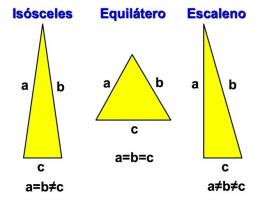Types of knowledge: empirical, scientific, philosophical and theological
The difference between empirical, scientific, philosophical and theological knowledge is in how we get it.
The empirical knowledge it is also called popular knowledge. It is obtained from the interaction and observation of the world.
The scientific knowledge it understands the information and facts that are verified by means of science.
The philosophical knowledge It is born from the reflections that the human being makes on subjective questions.
The theological knowledge or religious is sustained in religious faith and considers it the source of absolute truth.

| Empirical | Scientific | Philosophical | Theological | |
|---|---|---|---|---|
| What is it | It arises from the interaction of the human being with his environment. | It includes information and verified by analysis and scientific tests. | It arises from reflections on immaterial and subjective questions. | It is based on religious faith as absolute truth. |
| Value | Evaluative: It relies on personal experiences. | Factual: deals with facts and data. | Evaluative: addresses hypotheses that cannot be observed. | Evaluative: it is based on sacred doctrines. |
| check | It is verifiable. | It is verifiable. | It is not verifiable. | It is not verifiable. |
| Precision | Fallible and inaccurate. | Fallible and approximately accurate. | Infallible and accurate. | Infallible and accurate. |
| System | Not systematic or planned: it is organized based on experiences. | Systematic: it is planned and organized according to a method. | Systematic: organizes logical systems of thought and assessment. | Systematic: logically organize a belief system. |
What is empirical knowledge?
Also called popular knowledge, is the knowledge acquired through observation and interaction with the environment. It is the result of your own experience and common sense and not of scientific verification.
This knowledge does not propose a method for observing the object, nor does it require systematic checks to reach its conclusions.
This makes it fallible and inaccurate knowledge. However, it can be verified, since it is about things related to day to day.
Example: a farmer knows exactly when to plant and harvest as a result of his experience of previous harvests.
What is scientific knowledge?
Scientific knowledge is related to logic and critical and analytical thinking. It is the knowledge we have about facts analyzed and verified by a method, so that its truth or falsity can be demonstrated.
It is factual knowledge and that is why it is also fallible and approximately exact, since new ideas can modify previously accepted theories.
Example: The discovery of penicillin as a medicine to fight infections that threaten humans.
Also know the Difference between natural sciences and social sciences.
What is philosophical knowledge?
Philosophical knowledge is based on reflection and construction of concepts and ideas from the use of reasoning in search of knowledge.
Philosophical knowledge arose from the human being's ability to reflect, mainly on subjective and immaterial issues, concepts and ideas.
As these are theories that cannot be proven, it is not verifiable and therefore infallible and accurate.
Example: Platonic thought in which there are two opposing worlds: the world of ideas and the sensible world.
What is theological knowledge?
Theological or religious knowledge is based on religious faith, and affirms that in it resides the absolute truth. From an organized system of beliefs, the mysteries that haunt the human mind are explained.
There is no need for scientific verification for a certain "truth" to be accepted from the perspective of this type of knowledge. In this way, theological knowledge is infallible and exact, since it is a supernatural truth.
Example: The world and men were created by God.
It may also interest you Atheist and agnostic


